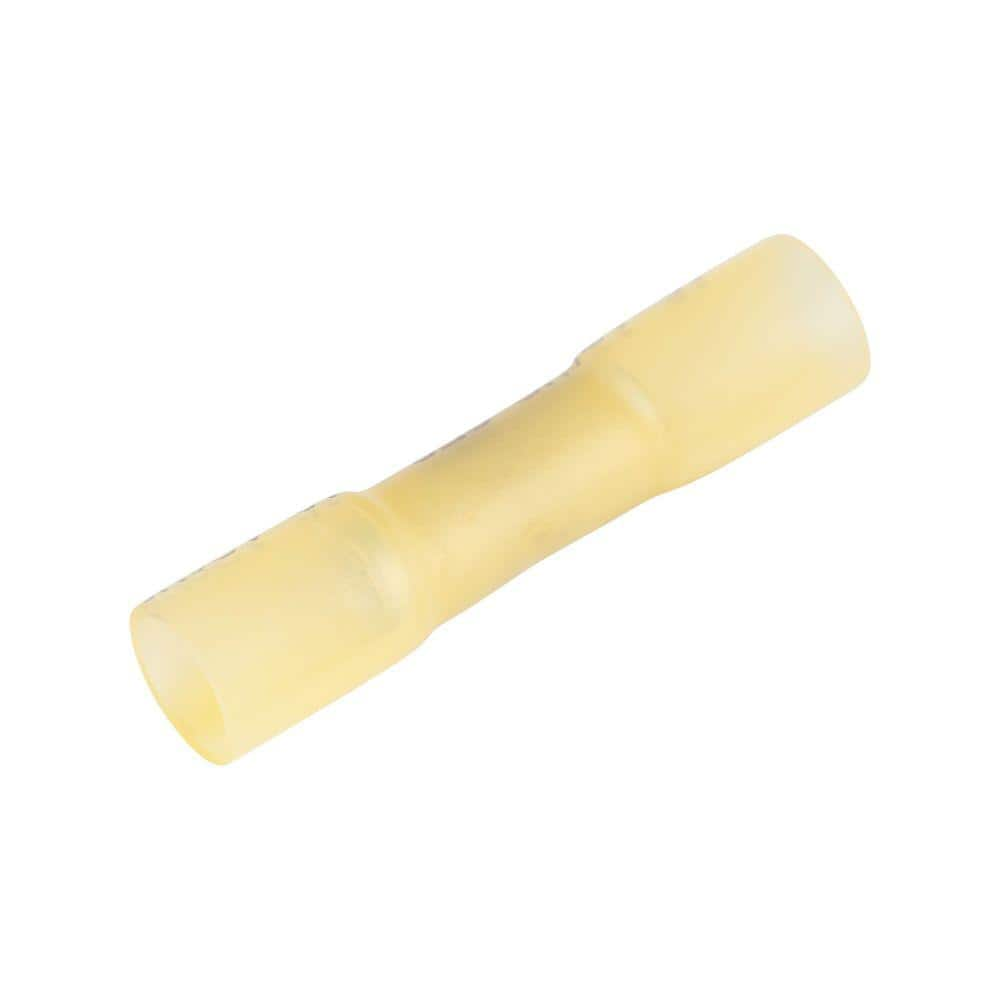You are using an out of date browser. It may not display this or other websites correctly.
You should upgrade or use an alternative browser.
You should upgrade or use an alternative browser.
Choosing Splicing Hardware in J-Box
- Thread starter jmoles
- Start date
Madco
Solar Enthusiast
Sounds like you are splicing AC since you mention the two branches. If so, DIN rail terminals are OK, but I would prefer insulated compression butt splices. Those that are insulated with heat shrink are my preference.
Morris and Apollo make some nice insulated splices with multiple conductor options but these are expensive.
Wire nuts should be fine on 30A branches also.
I would not interconnect PV wiring on DIN rail terminals. The connections will loosen over time/thermal cycles and eventually cause a fire in the box because the arcing will be DC and it won't self-extinguish.
The splices need to be listed to meet the code.
Morris and Apollo make some nice insulated splices with multiple conductor options but these are expensive.
Wire nuts should be fine on 30A branches also.
I would not interconnect PV wiring on DIN rail terminals. The connections will loosen over time/thermal cycles and eventually cause a fire in the box because the arcing will be DC and it won't self-extinguish.
The splices need to be listed to meet the code.
zanydroid
Solar Wizard
But SolaDeck, which is $$$, has a terminal block kit? Are they gaslighting us?I would not interconnect PV wiring on DIN rail terminals. The connections will loosen over time/thermal cycles and eventually cause a fire in the box because the arcing will be DC and it won't self-extinguish.
Terminal blocks like morris connectors use screw retention. Sure smaller screws, and more of them, to achieve the same splice.
Yea it's for 10awg AC connections. Sounds Like I'm just overthinking it then. I'll stick with wire nuts.Wire nuts should be fine on 30A branches also.
Ha, yea I was seeing a good deal of those which got me wondering if I needed to use terminal blocks.But SolaDeck, which is $$$, has a terminal block kit? Are they gaslighting us?
12VoltInstalls
life passes by too quickly to not live in freedom
would not interconnect PV wiring on DIN rail terminals. The connections will loosen over time/thermal cycles and eventually cause a fire in the box because the arcing will be DC and it won't self-extinguish.
Curious here.
Other threads have suggested and ‘blessed’ these as junction terminals for PV. It would seem appropriate to me as well especially if the ends are sleeved with crimped silver-played ferrules though I’m unconvinced ferrules would be required.
Some threads have suggested that wire nuts are also fine for PV under 30A. Though this doesn’t appeal to me.
Is there a) documentation that terminal blocks are bad, and b) a specific NEC chapter-and-verse that prohibits these UL-listed terminal blocks?
Madco
Solar Enthusiast
I don't know of any documentation, just my personal experience in using them. I don't know of anything in the NEC prohibiting use of a listed DIN terminal block either.
Don't think I don't like DIN rail terminals - I use at least 10000 of them a year. I just don't use them on DC PV applications because of the arcing issues.
Don't think I don't like DIN rail terminals - I use at least 10000 of them a year. I just don't use them on DC PV applications because of the arcing issues.
zanydroid
Solar Wizard
Are there terminal block types that you don’t like? The single piece type with fewer moving parts than DIN rails.
Or do those have too much metal by default for DC?
I guess the other question would be, thoughts on wrapping with rubber vs using pre insulated connectors. I know some people that say wrapped splicers and terminal blocks are more robust than pre insulated Polaris style connectors against vibration and heat.
Or do those have too much metal by default for DC?
I guess the other question would be, thoughts on wrapping with rubber vs using pre insulated connectors. I know some people that say wrapped splicers and terminal blocks are more robust than pre insulated Polaris style connectors against vibration and heat.
This will be AC. It’s the 10awg wire from micro inverters to the 10awg thwn-2. What do you think of these butt connectors. They’re cheap enough and UL listed:Sounds like you are splicing AC since you mention the two branches. If so, DIN rail terminals are OK, but I would prefer insulated compression butt splices. Those that are insulated with heat shrink are my preference.
The splices need to be listed to meet the code.

Gardner Bender 12, 10 AWG Yellow Butt Splice Heat Shrinks (5-Pack) AMT-4126 - The Home Depot
Dependable and easy to use, Gardner Bender terminals (and wiring accessories) offer the high quality and application flexibility that professionals demand. Available in a variety of packaging options,
www.homedepot.com
12VoltInstalls
life passes by too quickly to not live in freedom
A lot of people use that type. I do not as I favor bare crimps and double heat shrink over them. The bare ones accept a ‘B’ crimp and leave no airspace like those crush-crimps do. I might use them on 12V stuff like trailers but I avoid them even there.This will be AC. It’s the 10awg wire from micro inverters to the 10awg thwn-2. What do you think of these butt connectors. They’re cheap enough and UL listed:
Gardner Bender 12, 10 AWG Yellow Butt Splice Heat Shrinks (5-Pack) AMT-4126 - The Home Depot
Dependable and easy to use, Gardner Bender terminals (and wiring accessories) offer the high quality and application flexibility that professionals demand. Available in a variety of packaging options,www.homedepot.com
Similar threads
- Replies
- 4
- Views
- 341
- Replies
- 16
- Views
- 833
- Replies
- 4
- Views
- 343


